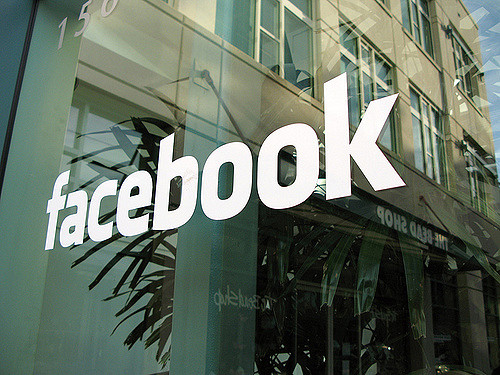Facebook Gets The Thrashing It Deserves

Photo Credit: Marco Paköeningrat/Flickr.com
Facebook (Nasdaq: FB) recently announced its fourth-quarter financials that sent its stock plummeting. The company suffered its biggest one-day wipeout ever with its stock sliding 26%, wiping out more than $230 billion of its market value. The company actually reported the first-ever user decline in 18 years, causing the big upheaval. Also, Apple has tightened the privacy screws on Facebook, taking away serious targeting capabilities. Most likely, a lot more grief is on the way for the company as EU privacy rules also start to kick in gear on privacy issues.
Facebook’s Financials
Facebook’s Q4 revenues grew 20% to $33.67 billion, ahead of the market’s estimates of $33.4 billion. Adjusted EPS came in at $3.67 against the market’s forecast of $3.84.
Advertising revenues grew 20% to $32.64 billion and other revenues fell 7% to $155 million.
Daily active user (DAU) numbers for the core Facebook app grew 5% over the year to 1.93 billion and monthly active users (MAU) grew 4% to 2.91 billion. The number of people active on any one of its family of products, which includes WhatsApp and Instagram, grew 9% to 3.59 billion people per month in the quarter. Daily active users on these applications were 2.82 billion.
For the fiscal year, Facebook reported revenues of $117.93 billion, up 37% and an EPS of $13.77.
Facebook’s Product Updates
Recently, Facebook announced updates of WhatsApp that will allow users to better organize their group chats and make it easier to find information from communities that they are a part of. It also announced the creation of Community Chats on Facebook and Messenger for real-time conversations within groups and communities. It also announced policies to add more privacy to its products, including end-to-end encrypted backups and disappearing messages on WhatsApp, in addition to end-to-end encrypted voice and video calling on Messenger. Facebook is investing in creating a major privacy infrastructure that will encode privacy commitments at a deeper level.
It recently announced AI Research SuperCluster, which it predicts to be the world’s fastest supercomputer when it is completed. The product will allow AI models to learn from trillions of examples and understand hundreds of languages. It plans on focusing on scaling its computing power in addition to transforming AI infrastructure through advances in foundation research as well as improvements to data center design, networking, storage, and software.
Facebook is planning for the release of a high-end virtual reality headset later this year and continues with developing Project Nazare, its fully augmented reality glasses. It also plans to launch a mobile version of its metaverse division, Horizon, to expand metaverse experiences to surfaces beyond VR. In addition to experiencing it through virtual reality, consumers will also have the ability to access worlds from Facebook and Instagram apps as well. It also announced the launch of Meta Avatars SDK to Unity developers on Quest, Rift, and Windows-based VR platforms, allowing developers to integrate Meta Avatars into their own VR experiences. With an update allowing customers to further customize avatars, it announced a partnership with NFL for digital clothing. The avatar can be used across Quest, Facebook, Instagram, and Messenger serving as a bridge between 2D social apps and 3D VR experiences.
The biggest news though was Facebook’s decreasing user count. Its DAUs fell from 1.93 million in the previous quarter to 1.929 million in the fourth quarter driven by a 1 million reduction in the user base in the United States and Canada to 195 million. Trouble began last spring when Apple introduced its new App Tracking Transparency that allowed iPhone owners to decide whether they would let apps like Facebook monitor their online activities. Users now have to specifically opt in to the tracking app, making it more difficult for Facebook to access user data and make more money.
Facebook is also struggling to address its competition. Google, for instance, is not as dependent on Apple’s privacy policies and ended up reporting record sales in its e-commerce search advertising. Advertisers are shifting budgets to Google over Facebook, and are likely to augment this trend. TikTok also continues to pose a challenge. TikTok recently announced that it had grown to over a billion users, although still significantly lower than the more than 2 billion users on Instagram. Facebook has been trying to compete with TikTok through Instagram Reels. While Reels is attracting users, it is unable to monetize as Instagram’s other offerings.
Its stock is trading at $227.93 with a market capitalization of $633.7 billion. It had climbed to a 52-week high of $384.33 in September last year. It hit a 52-week low of $227.76 after the earnings release.
Facebook is getting the thrashing it has deserved for a long time. It’s an irresponsible company toying with civic destruction at an unprecedented scale. Marc Zuckerberg is neither a genius political scientist, nor a philosopher, nor a particularly deep thinker. Yet, in his hands, we have placed the future of democracies, the development of teenagers, and a whole lot of other factors with monumental consequences.
People do not change unless they go through severe pain.
The same applies to companies.
Facebook needs to change. Thus far, call for change was deflected by stellar financial performance.
Now, the fun begins.
Disclosure: All investors should make their own assessments based on their own research, informed interpretations and risk appetite. This article expresses my own opinions based on my own ...
more


